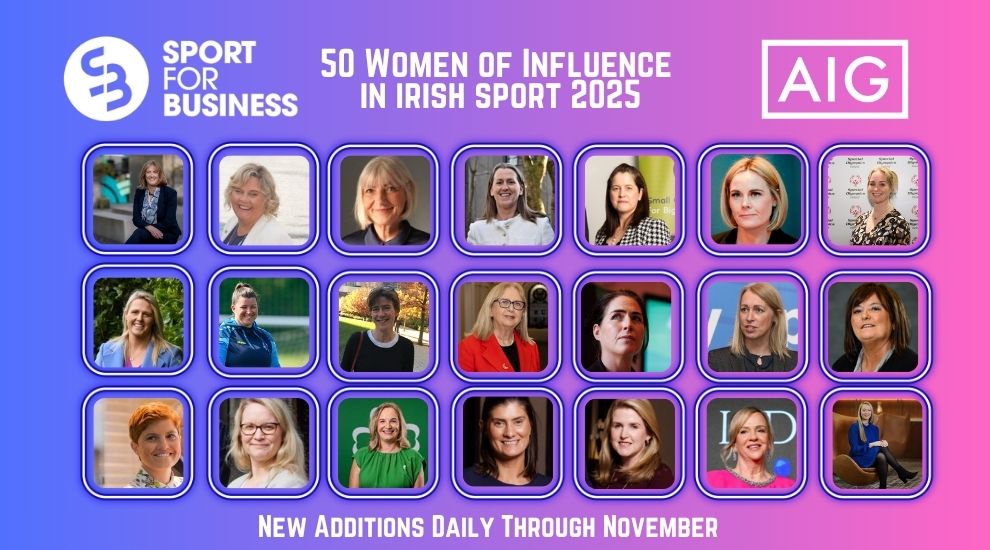The UK Government has placed physical activity at the heart of its newly launched 10-Year Health Plan. With sport and movement emerging as key drivers of health and wellbeing across communities, what do we need to do in Ireland to build a healthier future through sport?
When the UK Government unveiled its Fit for the Future: 10-Year Health Plan for England in early July, the central message was that the future of healthcare lies not only in hospitals and surgeries, but in parks, pitches, and pavements.
The plan signifies a strategic shift from treatment to prevention, positioning physical activity and sport as vital tools in addressing the nation’s health challenges.
It is long-term in vision and broad in scope, and its relevance extends to Ireland, where many of the same pressures and opportunities related to public health, community wellbeing, and sporting engagement are at play.
A New Model for Health
At the heart of the UK plan is a decisive pivot toward prevention. With the NHS under strain and lifestyle-related conditions on the rise, the strategy aims to reduce demand by enabling healthier lives, and sport, in its broadest sense, is fundamental to this shift.
The document emphasises movement, participation, and active environments. Whether through organised sport, informal recreation, or daily active travel, the message is that encouraging people to move is not only beneficial for individuals but also advantageous for the system.
More than £1 billion in new investment is pledged to support this approach, including:
- £400 million for grassroots sports facilities;
- £250 million for “place-based” pilots in 100 local communities, guided by Sport England;
- £616 million for active travel infrastructure, such as cycle lanes, walkways, and safer routes to schools.
One of the most eye-catching ideas is the creation of an annual competition to crown the “Most Physically Active Community”, modelled loosely on the UK City of Culture. The aim is to shine a light on local leadership and innovation in movement-based health promotion, a concept that could resonate strongly in the Irish context.
Sport as Public Good
The UK’s framing of sport as a core component of public health infrastructure marks an evolution in policy thinking.
No longer just a matter of recreation or entertainment, sport is now being explicitly tied to outcomes in physical and mental health, social inclusion, and economic productivity.
Sport England and the sector more broadly have welcomed the emphasis. Tim Hollingsworth, Sport England CEO, called it a “once-in-a-generation opportunity” to embed activity into everyday life.
Similarly, ukactive and the Sport and Recreation Alliance have highlighted the long-term savings – estimated at £10.5 billion annually – that could accrue through reduced NHS demand and improved productivity if the strategy delivers.
However, sector leaders have also urged clarity on how delivery will work in practice – with particular concern for workforce training, local authority support, and the integration of sport into clinical care pathways.
These same questions are highly relevant in Ireland, where Healthy Ireland, Sport Ireland, and national strategies across mental health, children’s wellbeing, and climate action have all acknowledged sport’s role, but where delivery can often depend on fragmented funding and short-term pilot schemes.
Echoes in Ireland?
Ireland’s National Sports Policy runs until 2027 and is actively being looked at for an extension. This will need to set clear targets around participation, health benefits, and inclusion.
The Community Sports Facility Fund has been successful in creating local sport and physical infrastructure.
Investment here in Local Sports Partnerships (LSPs) mirrors the place-based logic of the UK’s pilots, and is embedded in the system.
Similarly the mandate for every local Authority to produce a Sports Action Plan will deliver over the next two years, as it has already across the four Dublin local authorities.
Could we go further.
Could we imagine a similar cross-governmental push, with meaningful funding tied to the health budget, to embed physical activity in health service design?
Could we create a version of the UK’s “Most Physically Active Community” competition, incentivising collaboration between local authorities, schools, GAA clubs, gyms, and health services?
Recent expansions of Greenways, urban cycle schemes, and Safe Routes to School could be better integrated into a unified vision that connects health, sport, and the built environment.
Prevention by Participation
The UK plan’s boldest step may be its reimagining of where and how health is delivered.
Alongside expanded GP services and diagnostics, the plan backs Neighbourhood Health Centres, places that would actively integrate sport and movement providers into health and wellbeing offerings.
Imagine walking into a community health centre where a GP can prescribe a walking group or a fitness class with local GAA or Active Retirement facilitators.
This model echoes ideas long championed by advocates of social prescribing, a movement gaining traction in Ireland.
It is a policy shift that has been advocated for by the Federation of Irish Sport with Government Ministers.
Pilot projects in different areas including Dublin, such as the Exwell programme have already shown how community sport can support those in recovery, and those at risk of isolation, obesity, and depression, with referrals made by local health professionals.
A more structured, nationwide framework for such integration, backed by long-term funding and shared outcomes, could lift Ireland’s approach to prevention.
Sector Opportunities and Responsibilities
While government leads on strategy, it is the sporting sector — from governing bodies to community clubs — that must bring it to life.
For Irish sport, the UK plan provides a compelling call to action, to embrace a broader social mission, build partnerships beyond traditional boundaries, and make a more persuasive case for funding not just as a sport, but as a driver of public good.
It would require funding beyond that which is currently delivered through core funding and high performance streams.
As the Irish Sports Monitor continues to track trends in participation, and as Sport Ireland prepares to update strategic priorities post-2027, there is an opportunity to look outward — and draw from international models like the UK’s to build on what is already here and expand further for the good of the whole of society.
The GAA’s Healthy Club initiative, the FAI’s Football for All, and Swim Ireland’s Learn to Swim programmes are just a few examples of how sport is already contributing to social outcomes.
Scaling these, and connecting them more closely to national health goals, and funding, should be very clearly on the radar.
Conclusion
The UK’s 10-Year Health Plan represents a clear statement: sport and physical activity are not optional extras — they are essential services in a healthier society.
For Ireland, we have an opportunity to recognise the potential of sport to deliver not just medals and memories, but measurable improvements in public health, wellbeing, and community resilience.
As policymakers here consider the next steps in health reform, sport deserves a central seat at the table. The UK plan shows what’s possible when we think bigger and move together.
The greater integration of Sport, Physical Activity and Public Health will be a central topic for discussion at our Sport for Business Sport for Social Good Conference in Dublin On Tuesday, October 14th, early bird tickets and more details for which will be released on Friday.
Sport for Business Events
Find out More about Our Sport for Business Events Programme Here
The Latest Sport for Business Podcasts
Further Reading for Sport for Business members:
Check out more of our Sport for Business coverage of Health
WHAT’S UP NEXT?
Sport for Business is in planning for a number of major events bringing together leaders in Irish Sport and Business across a range of subjects in the second half of the year.
On Wednesday, September 10th we will host a special event looking at Future Proofing Irish Sport including the use of AI in sport. Then on September 25th we will host our Annual Children in Sport Conference, and on October 14th, our Annual Sport for Social Good Event, both in partnership with Allianz. In November we will host a new event focused on Sustainability in Sport and in December our 12th Annual Women in Sport Conference, in partnership with Lidl.
Find out More about Our Sport for Business Events Programme Here
MEMBERSHIP AND EVENTS
Sport Ireland, the Department of Culture, Sport and Media and the Federation of Irish Sport, as well as all the leading sporting and business organisations in and around the world of sport are among the 300+ members of the Sport for Business community.
This includes all of the leading sports and sponsors, as well as commercial and state agencies, individuals interested in our world, and an increasing number from beyond these shores taking a keen interest in Ireland.
Find out more about becoming a member today.
Or sign up for our twice-daily bulletins to get a flavour of the material we cover.
Sign up for our News Bulletins here.




























